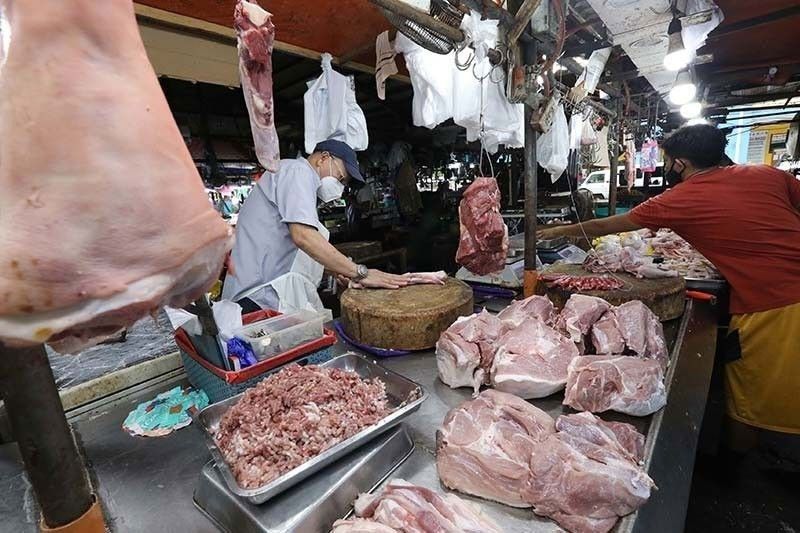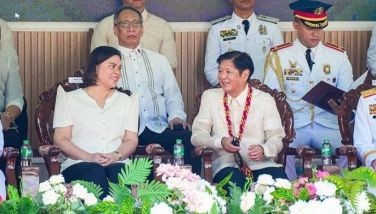30 million kilos of pork smuggled in 2020

MANILA, Philippines — Some 30 million kilos of pork some possibly contaminated with African swine fever (ASF) were smuggled into the country last year, prompting senators to suspect massive corruption involving agencies other than the Department of Agriculture (DA).
The issue of smuggling as well as the multibillion-peso corruption at the DA, Bureau of Customs (BOC) and other agencies involved in the importation of pork and other agricultural products will be taken up at today’s resumption of the Senate committee of the whole’s inquiry into the food and ASF crises.
Citing the huge discrepancy in the figures of the BOC and the DA’s Bureau of Animal Industry (BAI) on the volume of pork that entered the country in 2020, Sen. Francis Pangilinan urged Customs officials to keep a tighter watch on possible misdeclaration or misclassification of pork shipments.
“Why are the data of the Customs and BAI different? Why are Customs’ figures lower? Where did the roughly 30 million kilos of imported pork go? Could this be the amount of imported pork that passed through Customs without tax?” Pangilinan asked.
He said BOC data showed that a total of over 225 million kilos of pork with a value of over P16 billion was imported in 2020. But the BAI, which conducts the meat inspection, reported pork imports at over 256 million kilos.
“This discrepancy should be explained because Filipino hog growers have already lost billions of pesos to ASF, and now billions of pesos of taxes that could be used to help them recover are lost too,” he said.
Pangilinan said every time smugglers dodge paying the proper tariffs in cahoots with some Customs officials, the government loses taxes that could have been used to aid the local hog industry plagued by ASF.
“This is criminal and unconscionable, especially in these times when Filipinos are barely eking out a living due to high prices of goods, loss of jobs and lower incomes,” he said.
Sen. Panfilo Lacson, whose Resolution 685 triggered the all-member panel to conduct the probe, vowed to pursue what he previously described as the multibillion-peso “tongpats” or padding of cost of pork imports as well as the manipulation of the “raffle” at the DA in issuing import permits within and outside the minimum access volume (MAV).
The MAV refers to the volume of a specific agricultural commodity that may be imported with a lower tariff as part of the country’s compliance with its commitments to the World Trade Organization.
During the hearing last Monday, it was learned that despite President Duterte’s issuance of Executive Order No. 128 reducing pork tariffs to as low as five percent and raising the MAV or ceiling for the imports to 350,000 metric tons (MT), there is no guarantee that prices of meat will go down in public markets.
Lacson also questioned why the same four importers win the raffle for import permits every year. “If there’s favoritism in the allocation of MAV quotas, it’s only logical to conclude that there’s bribery,” he said in Filipino.
He mentioned during the hearing the firms Atkins Import and Exports Resources; E&L Faster Food Imports Inc.; Technofarm Agricultural and Aquatic and Rizalyn Manio Manaloto Trading as the four companies allegedly cornering pork imports under the MAV.
Lacson said Agriculture Secretary William Dar’s blanket denial of corruption in the DA and its numerous attached agencies instead of ordering an investigation was suspicious.
“It’s either he’s fooling us, or benefiting from it (corruption), or he does not want to ruffle the feathers of some groups in the department, or there’s pressure on him coming from outside the DA,” he said.
Lacson also said the justification of Dar and Malacañang in raising the MAV – currently at 54,000 MT – six-fold was not backed by data at all.
Meanwhile, the passage of a proposed resolution seeking to revoke EO 128 is almost certain with other leaders of the chamber expressing support for the measure.
Congressional powers
Yesterday, Malacañang said it respects the power of Congress if it should decide to revoke President Duterte’s issuance of EO 128, which increases the cap on pork imports while reducing tariff.
Senate Minority Leader Franklin Drilon is filing a joint resolution with Senators Cynthia Villar and Pangilinan to revoke EO 128, which they believe would kill the ailing local hog industry and might be a source of corruption in the DA.
Sen. Grace Poe said she intends to become a co-author of the resolution. Senate President Vicente Sotto III and Senate President Pro-Tempore Ralph Recto said they also support the resolution.
At the House of Representatives, Rep. Stella Quimbo of Marikina City joined senators in opposing the EO, which was recommended by the DA to stabilize soaring prices of local pork due to the shortage caused by ASF.
“The Palace respects the call of some lawmakers to revoke Executive Order No. 128, which temporarily modifies the rates of import duty on fresh, chilled or frozen meat of swine,” presidential spokesman Harry Roque Jr. said.
The Palace spokesman said Congress may reverse the President’s decision since lowering the tariff on imported pork was an authority delegated by lawmakers to the Chief Executive.
In the event that lawmakers decide to reverse EO 128, Roque said such an action is within the legislative power of Congress.
“EO No. 128 lowering the tariff of imported pork is only a delegated power given by Congress to the President to impose tariff rates, imports or exports pursuant to Section 28 paragraph 2, Article VI of the Constitution. Hence, Congress may, by law, impose limitations on such delegated power or may reverse the same,” he said.
“Further, should Congress pass another bill changing the tariff on imported pork, the President may veto any particular item or items in such appropriation, revenue or tariff bill,” he explained.
Malacañang is open for dialogue with lawmakers to determine how to address the issue.
“However, given the importance of the issue, the executive and the legislative branches can work together in protecting the interest of the stakeholders such as consumers and our hog raisers alike,” Roque said.
Sen. Imee Marcos lamented the foregone revenues from tariffs which could have been used to help the country’s 80,000 hog raisers even as she blasted the DA for having always resorted to importations to fill supply gaps instead of promoting productivity among farmers.
In opposing the EO, Quimbo said it is a premature policy to address the pork supply shortage which has driven market prices up.
“In the face of higher prices of pork, the government’s move to reduce tariff rates on pork makes economic sense. There are three questions though that remain unanswered, hence, the policy issuance is arguably premature,” she said.
The deputy minority leader explained that tariff reduction requires a perfectly competitive market to be effective in reduction of prices.
“Competition is key in making reduced tariffs pro-people. In a less than perfect situation, reducing tariffs alone may not work. Government must be part of the solution and must be temporarily allowed to import pork to help stabilize prices,” she suggested.
The ranking lawmaker questioned the five to 10 percent tariff set in the EO.
“A straightforward computation shows that even at 10 percent, imported pork can sell at P250 per kilo, assuming a retail margin of 10 percent. Are we assured that five to 10 percent tariffs are the appropriate rates to return inflation for the food sector to pre-African swine flu levels?” she asked. – Christina Mendez, Edu Punay
- Latest
- Trending






























